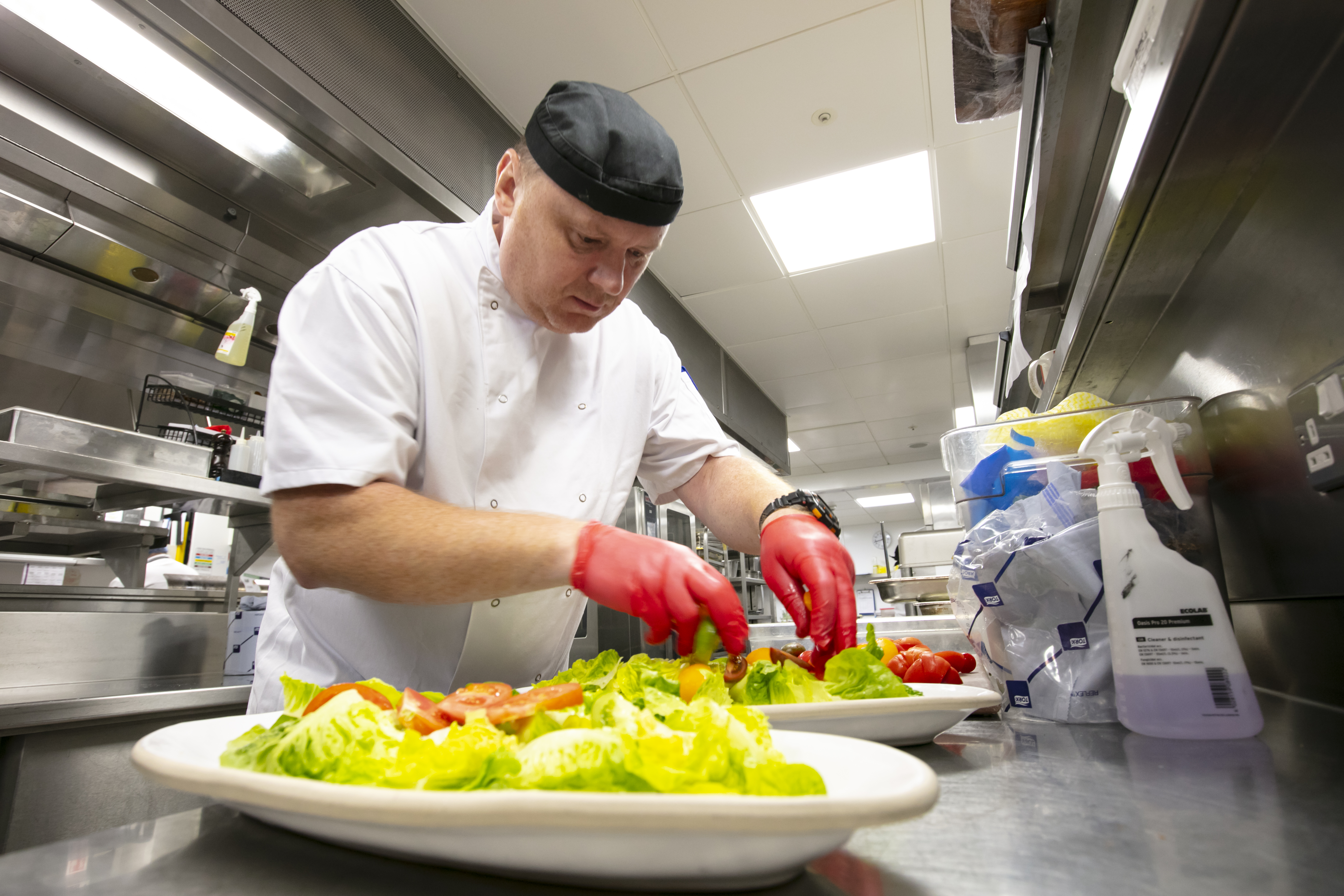International day of action targets global food waste challenge
Roughly one-third of the food produced globally is either lost or wasted every year, and in the UK alone the food-service sector throws away one million tonnes of food; 75% of which could have been eaten in some form.[1] For Compass Group, the global leader in food service, today marks Stop Food Waste Day, an international day of action in the fight against food waste, in partnership with high-profile international clients such as Google and HSBC, as well as local charities and community groups. For example, here in the UK, Compass has teamed up with Fareshare, online food redistribution charities; Plan Zheroes, Olio and Too Good to Go, as well as local charities and community groups.
Launched by Compass Group USA in 2017, Stop Food Waste Day is an annual event to raise awareness of the issue of food waste and encourage the industry, from farm to fork, to reduce the amount of food thrown away. Compass is working across 50 countries with its suppliers, employees and customers to deliver meaningful solutions to address this global problem.
Compass clients and country teams will come together to focus on reducing food surplus, help in building partnerships with charitable organisations for the collection and donation of excess food to local communities, partnerships with activists and influencers and marketing materials to raise awareness of ways to save at home. In the UK, other activities include:
- Partnering with WRAP to provide a range of tasty leftover food recipes at our main head offices;
- Weekly 5-minute briefings to help on-site teams to take action in the lead up to Stop Food Waste Day;
- Poster and social media campaign using the hashtag #stopfoodwasteday to drive interest
Our commitment to reducing waste includes our agreement to adopt the principles of Target, Measure and Act within our own operations and we have invited our suppliers to do the same, all whilst engaging with our consumers to help reduce their food waste also. We are a signatory of WRAP Courtauld 2025, a 10-year voluntary agreement that brings together organisations from across the food supply chain, working towards collective targets for 2025 (vs 2015).
As one of the 90 early adopters, we have committed to the ambitious milestones laid out in a new ground-breaking industry Food Waste Reduction Roadmap to halve UK food waste by 2030, developed by both the IGD (Institute of Grocery Distribution) and WRAP (Waste and Resources Action Programme), the world leaders in helping organisations achieve greater resource efficiency. To achieve its ambitious targets, in 2014 Compass partnered with technology company, Winnow whose ‘smart scales’ technology enables commercial kitchens to measure and better manage food waste across more than 250 Compass sites in the UK. Since 2015, HSBC has reduced its food waste by 60% - which represents 650 tonnes of food waste avoided. Following a successful deployment in the UK, Compass plans to roll out food waste management systems across further units globally in 2019, helping clients to track progress on reducing food waste.
Dominic Blakemore, Chief Executive, Compass Group, said: “Food waste is a serious problem for the world today, and as the global leader in food service, we are determined to play our part in driving change. Working with our suppliers, partners, clients and consumers across the 50 countries we operate in, we are focused on educating our teams and our customers on how they can play their part in cutting food waste, today and every day.”
Compass’ other achievements in 2018 in the UK include:
- Compass’ UK distribution centers donated nearly 10 tonnes of surplus food to FareShare, the UK’s largest charity fighting hunger and food waste[2]
- 3,500 tonnes of food waste were sent for anaerobic digestion, where it is broken down to create biogas and nutrient-rich fertiliser[3]
ENDS
[1] http://www.wrap.org.uk/food-drink/business-food-waste/hospitality-food-service
[2] Compass Group’s Corporate Responsibility Report 2018, page 15
[3] Compass Group’s Corporate Responsibility Report 2018, page 15

